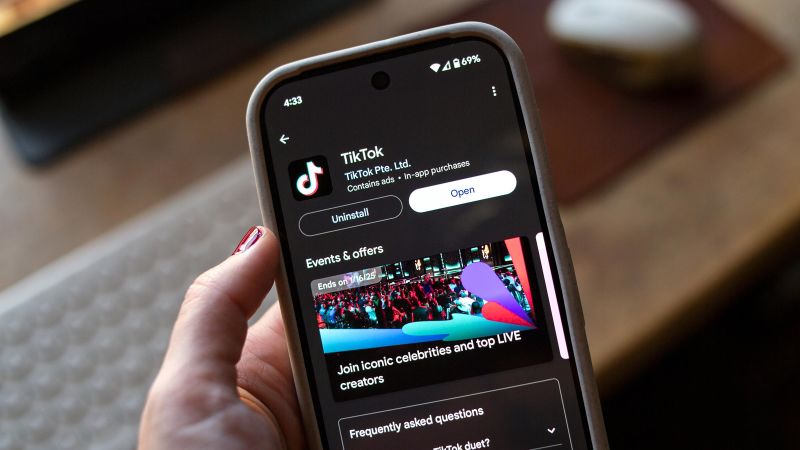In an emerging narrative surrounding the widely popular social media application TikTok, U.S. President Donald Trump has expressed a willingness to extend the divestiture deadline set for the app’s China-based parent company, ByteDance. Originally slated for June 19, the deadline’s possible extension stems from the ongoing tussle over TikTok’s U.S. assets, which are utilized by approximately 170 million Americans. Trump has conveyed his intention to prioritize reaching a satisfactory deal before imposing any stringent measures on the app.
In a recent interview with NBC’s “Meet the Press,” the president articulated his views while at his Mar-a-Lago estate located in Palm Beach, Florida. In this televised exchange, Trump stated, “I would … I’d like to see it done,” emphasizing his desire for an agreement that would be beneficial for all parties involved. This marks a significant moment in a wider geopolitical dilemma, as the app has increasingly become a tool through which Trump engages with younger voters, potentially increasing its importance in upcoming elections.
Trump himself remarked on his “sweet spot” for TikTok, further adding, “TikTok is – it’s very interesting, but it will be protected.” His administration has already moved to delay the enforcement of a congressional ban on TikTok multiple times, which was initially meant to take effect in January. This has ignited discussions about the app’s future while emphasizing the complexities inherent in the negotiations.
There were plans for a deal that would see TikTok’s U.S. operations transitioned into a new company, fully located in the United States and predominantly owned by American investors. However, these discussions came to a standstill after China indicated that it would decline to approve the arrangement following Trump’s announcement of hefty tariffs imposed on Chinese exports. As trade disputes escalated, so too did the challenges facing negotiations over the social media platform.
Complicating matters, Democratic senators have raised objections to Trump’s legal authority concerning the extension of this deadline, suggesting that the proposed deal may not satisfy legal standards established in previous statutes. The back-and-forth negotiations have created an intricate web of political, legal, and economic obstacles that stakeholders must navigate.
Despite the hurdles, reports from a source close to ByteDance’s U.S. investors mentioned that preparations for a potential deal are progressing ahead of the June 19 deadline. However, both the White House and the Chinese government must first reconcile the tariff disagreements that have become a central point of contention in broader U.S.-China relations.
Echoing this concern, Trump noted that China is eager to attain an agreement, especially considering that the imposition of 145% tariffs on Chinese goods has exerted pressure on their economy. Nevertheless, Trump has made it clear that he intends to maintain these tariffs as leverage, suggesting that they might be lowered eventually as part of a comprehensive agreement designed to solve the ongoing issues.
“The point at which I might decrease them has not yet arrived,” Trump remarked, reflecting a cautious approach toward negotiations. He suggested that an eventual tariff reduction will be necessary to facilitate legitimate business interactions with China, stating, “At some point, I’m going to lower them because otherwise, you could never do business with them.”
Legally, TikTok’s operations were mandated to cease by January 19 unless ByteDance successfully divested its American assets. However, following the president’s second term commencement on January 20, Trump chose not to enforce this directive, instead extending the deadline to April and subsequently to June 19.
In conclusion, the situation surrounding TikTok is emblematic of broader U.S.-China relationships and highlights the intricate interplay of social media dynamics within the political landscape. As stakeholders anticipate the outcomes of ongoing negotiations, the potential for a resolution—while fraught with challenges—remains an essential focal point for both nations.



